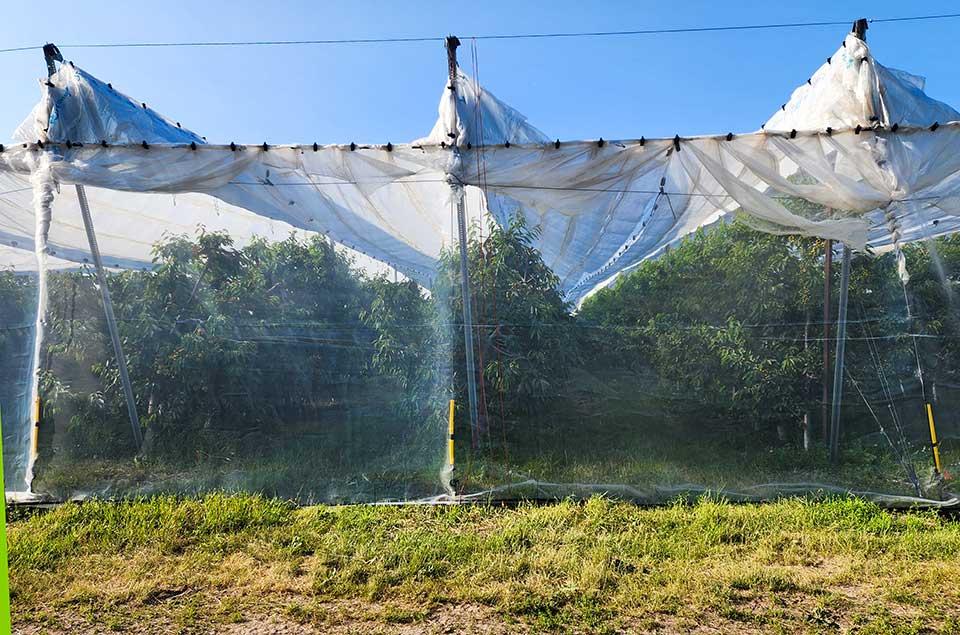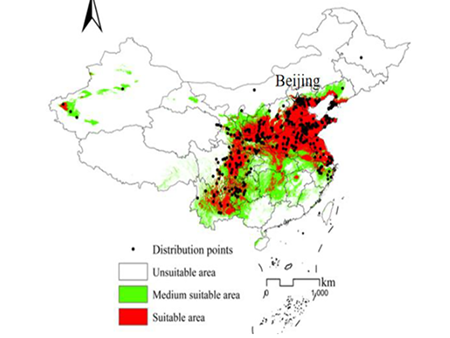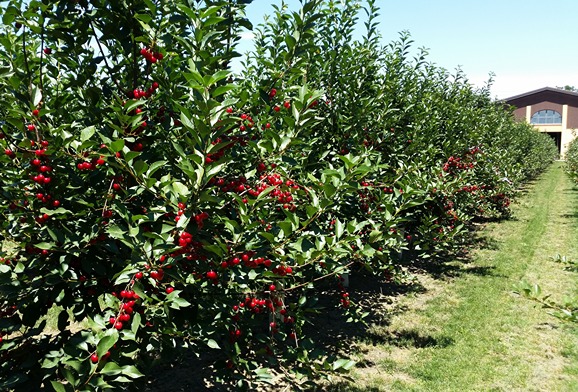Justin Finkler no longer has to sleep with one eye open. His sweet cherry operation, once at the mercy of nearby Lake Michigan, now battles the elements behind a solid defense system. Covers and protective netting fully adorn 30 acres (12 hectares) of sweet cherry at Riveridge Land Co. in Grant, Michigan. By 2027, the same will be true for the 40 acres (16 hectares) of trees planted last year and the 50 acres (20 hectares) to be planted this season.
Finkler, the farm's chief operating officer, couldn't be more pleased with the repeated expenses. Without rain protection, the vulnerability to cherry cracking is significant. The fruit goes to waste or is harvested prematurely.
“To grow any type of program or have confidence in any kind of volume throughout the season, you need to have covering,” Finkler says. "Our climate is so irregular that you need to take some of these measures as a countermeasure. It seems like there is something every year."
Riveridge learned the hard way before turning to German manufacturer Voen Covering Systems in 2022. At the time, Finkler simply wanted to avoid cherries cracking from the rain.
“Being so close to Lake Michigan in the summer, we don’t have much time to react to a rain event,” Finkler says. "If you get an inch of rain 10 days before harvest, it can be a complete disaster. It has happened to us several times."
In such cases, Finkler and his staff had to inevitably harvest the crop — despite its immature state — ahead of the rain. “If you have one shot to pick before the rain hits, you usually err on the side of caution,” Finkler says. “It really forced us not to harvest the highest quality fruit.”
After considering protective covers and consulting with Voen as early as 2017, Riveridge began preparing existing blocks for what turned out to be a transition to the current covering system in 2022. Installation happened early in the spring. The learning curve was rather steep. Tall, mature trees made the process even more difficult.
“We didn’t have some of the equipment we needed. We tried to rent some equipment; some of it works well in an outside orchard application, and some of it doesn’t,” Finkler recounts. “Plus, we had to install the cover on top of trees that were already 12 to 15 feet tall. It was a challenge.”
Since then, Riveridge has custom-built some of its equipment, including platforms and skid steer attachments to handle rolls and cabling. The new plantings, with the ultimate goal of high density, will all be designed with V-trellis and UFO systems.

“We are much better suited now than when we started,” Finkler says. “Now when we plan the orchard, we put the trellis in right away with center posts to handle the cover. All we have to do is put a hardware kit on top of the post and then the cabling and then roll the cover out — much easier than trying to plant posts around trees and everything else.”
Row covers can alleviate many more issues than just rain cracking. They potentially protect from frost, hail, wind, insects, disease, and birds.
Last year frost hit Michigan’s Fruit Ridge. According to Finkler, the covers alone raised the temperature by 3 to 5 degrees. With the addition of heaters, the rise was 5-7°F. The fuel source for the heaters is wood pellets, which, according to Finkler, produce no soot that could degrade the cover material.
Finkler believes that vertical bird netting hung around the cherry block perimeters would further raise the temperature because of its wind-blocking ability. This spring will prove whether this is true, as last year Riveridge added a net (also produced by Voen) later in the season to combat birds.
“Last year, all of our covered acres were fitted with bird netting, which makes a significant difference in bird damage,” Finkler says. “When we picked and packed cherries last year, there were hardly any bird pecks in the packs.”
Since installing the cover system, Riveridge has yet to experience a hailstorm. In any case, hail season coincides with rain season, meaning covers would be deployed regardless.
“Last year, we put the covers on for frost protection in mid-April and left them until harvest,” Finkler explains. “We started harvesting from the third week of June to the third week of July, so it didn’t seem very economical to take them in and then take them out with the labor hours. I don’t know if we will continue to do that for all varieties on all surfaces. Some will pull back, some will come back out. We are learning as we go.”
As for high winds, although Riveridge has seen gusts of about 70 mph, there have been no significant issues, Finkler says.
Regarding insects and diseases, some of Riveridge’s bird netting is small enough to discourage spotted wing drosophila (SWD), although Finkler does not specifically target this pest. Likewise, the moisture-preventing aspects of the rain covers indirectly limit the incidence of bacterial canker and leaf spot.
Finally, Riveridge uses its cover system to promote pollination, attracting bees in a warmer atmosphere. “If it’s a little cooler outside, if we can gain a few degrees and get the bees to work better, we can spread our pollen,” Finkler says.
Read the full article: Growing Produce
Image: Riveridge Produce Marketing
Cherry Times - All Rights Reserved












